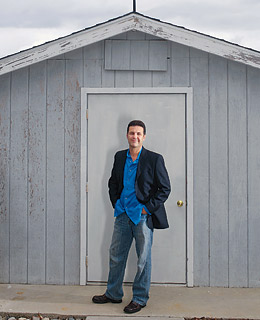
Not many people write successful first novels. Still fewer are able to change the world with their writing. Khaled Hosseini, 43, has done both. His 2003 novel, The Kite Runner, introduced readers around the world to the people of Afghanistan. Four years later, he published A Thousand Splendid Suns—and helped his audience see the faces of the women under the burqas.
Hosseini's stories are set against the backdrop of Afghanistan's tumultuous history. His complex portrayal of human nature, however, transcends geographic boundaries. In more than 40 languages, readers everywhere can recognize the best and worst in humanity in his characters—often in the same person.
In America, Hosseini's writing has invited many to look beyond the post-9/11 stereotypes about his birth country. We have grown to see Afghanistan as a land of men and women, each with their own hopes and longings for love.
The U.S. office of the United Nations High Commissioner for Refugees recognized The Kite Runner's impact by naming Hosseini the 2006 Humanitarian of the Year. Since then, his work as a goodwill envoy has taken him to the homes of returning Afghan refugees and to camps in eastern Chad.
Hosseini has said his novels intertwine the "intimate and personal" with the "broad and historical." As President Bush and I have encountered him through his writing and his work, we've discovered that his life does much the same.
Bush, an activist on behalf of Afghan women, is First Lady of the U.S.